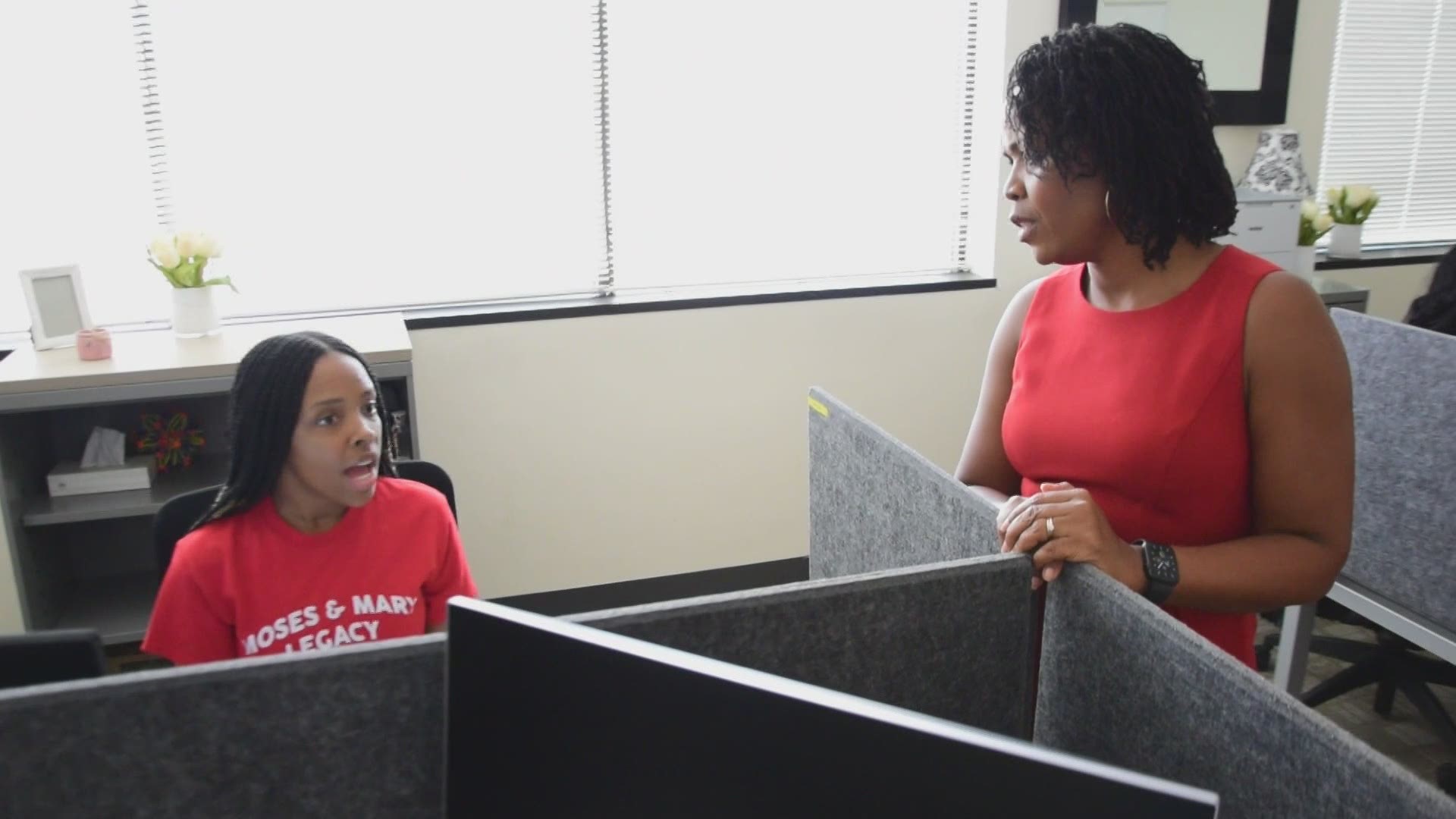DALLAS — Seasons of burnout. Most people who’ve settled into their job or career experience it. It's a challenge that Irish Burch, the new CEO at Dallas Children’s Advocacy Center, believes is best to address by way of example.
The work she and her colleagues do can by taxing, Burch explains. She’s been in the field for over 26 years, and managing employee mental health is critical to supporting the children they serve.
DCAC works thousands of cases of child abuse every year, collaborating with multiple partners to make sure they are moving at the same pace to serve their children as best they can.
“We're able to really fulfill our mission by doing what we do through a multi-disciplinary approach," she said. "We can't do this work alone."
Burch keeps her communication intentional, to meet everyone's needs. That includes her own people, too.
"We really work to ensure everyone understands the resources we provide," she explained. "We are diligent to make sure we provide those mental health support systems free of charge to our staff members and our partners. We are encouraging our staff members to always take care of themselves, take your wellness leave, take your vacation time."
Warning signs of burnout and how to handle it
Burch speaks from experience. She had her own season of burnout while she spent years at DCAC as a forensic interviewer.
"Two of the things that I learned that are very critical is one, you have to have a world outside of this one. When you're in a mission-focused organization, then it almost becomes your life, it can consume you," she explained.
But that's not a healthy balance. So what are some signs someone is starting to burn out?
It looks different for everyone, but there are some things to look for.
"Some people might be disengaged, [when] they are usually really engaged with everyone, you'll notice a form of disengagement," Burch said. "Some people might struggle with performance issues, some people might start to call in a lot and really want to stay home. Some people may just feel like 'I'm not as excited as I used to be.'"
How managers can help employees deal with burnout
You’ve got to be dialed in to your employees to recognize those changes. Then, once you've spotted them, Burch said it's vital to have a conversation that empowers honesty.
"I don't have a problem saying, "This was hard, that was a hard case.' You must model that behavior; our leaders must model that behavior of being able to say, 'I think I'm going to stay home to take a wellness day.'"
That approach can eliminate embarrassment and help people figure out if they are overwhelmed or experiencing burnout themselves.
Burch also has some advice on what steps to take to make sure employees have a supportive space to address their needs.
"The problem is when people are not invited to the table or people don't feel heard," she said. "If you're not asking them about what they think or how we can create a better work environment, what we can do to address burnout, then people are going to feel as if you don't care. You must ask the question, then listen for the response. People want to feel heard, and that's our responsibility to make sure they are."
Two leadership takeaways
1. Burch advises managers to lead people how they need to be lead. Remember it's never a one-size-fits-all approach.
2. Burch also said she loves the book “Powerful” by Pattie McCord. She paraphrases one of her favorite chapters:
“Grown people show up here [at work] every day. There are some things that you can't always share, but you need to be able to give people the information that they need to make decisions for themselves. When we want to shield and protect them, that's not always the best thing."
In short, learn to trust your staff members to handle difficult conversations.
Burch firmly believes we are all better together. It’s how Burch and DCAC get the job done.
Edited by WFAA Digital Producer Jennifer Prohov

